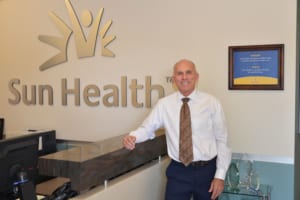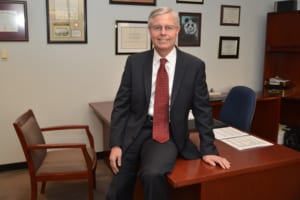Kathleen H. Goeppinger, Ph.D.
President and CEO, Midwestern University
How did the recession affect Midwestern University’s enrollment and course offerings?
It’s a very interesting thing, but when a student is ready to make a career choice, we’re finding that more and more want to go into health care, because it’s one of the professions – whether it be medicine or dentistry or occupational therapy – that they know is always going to be needed in the future. So, instead of having a concern about our enrollments, the application pool and the applicants is so high right now that our toughest job is deciding who we can admit. It’s pretty much the reverse of the industries that I know of around the Valley.
What kind of feedback are you getting from business leaders in terms of what they need from Midwestern’s course offerings?
One of the tough things that we are always doing is looking very strategically at the health care needs of all of the communities that we serve. We spend a great deal of time analyzing and looking at what’s needed next. In many times, we’ll start an academic program to meet a shortage within the state. A great example is nurse anesthesia. We began the nurse anesthesia masters program in the College of Health Sciences because the local hospital CEOs came to us and said, We can’t recruit; there’s not enough here in the Valley; we absolutely have to have a program. So we have responded to the community need, the hospital need, and even the general health care need when we’e gone ahead and started new programs.
What are some of the challenges and trends facing private universities such as Midwestern?
I’ve been the president and CEO now for 15 years. And in those 15 years, while sometimes challenges may change because student expectations might be a little different, curriculums change, but I don’t know if I see any of the core values of running a higher education university different today than I did 15 years ago. I think sometimes we have to be a little more aware of the academics around us. We have to be a little more sensitive to the students who come in – not with the same background that I might have had when I was a college student or a graduate student. But I think for the most part, the core values of who we are and how we serve the community have never really changed.
What skills are needed to be an effective C-level executive at a private university?
I think people who want to be in leadership roles have to be very willing to carefully listen to others and not be the one to talk, but be the one to listen and understand people’s needs, to be able to give them coaching and direction. The other thing I would say (to people) looking to get ahead in their career is to never be afraid of the numbers. I have had people who have worked for me say, “I can’t understand the numbers.” Well, I think that you have to understand the numbers and you have to make sure you have a great understanding of the financial part of an organization and how does it grow and what do the numbers say to you. I’ve always told people here that you can’t manage what you can’t measure. So, if you can measure it and understand it and set up clear objectives, you then can be very effective.
- Appointed president and CEO of Midwestern University in 1995
- Member of the university’s board of trustees since 1985
- From 1985 to 1995 served as professor and director of the Center for Organization Development at Loyola University Chicago
- Worked at Carson Pirie Scott & Co. from 1966 to 1985
- Received the Corporate Citizen of the Year Award from the Glendale Chamber of Commerce in 1999
- Received the Excellence in Osteopathic Medical Education award from the Arizona Osteopathic Medical Association in 2003
- www.midwestern.edu




